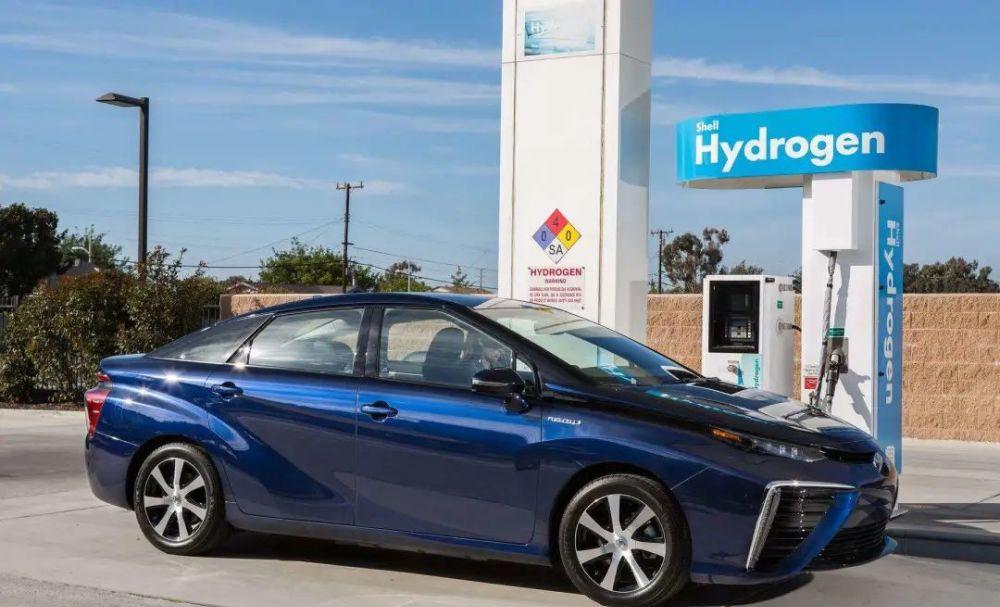Hydrogen fuel cell or lithium battery electric vehicle good? The debate seems to be getting hot again every once in a while.

Many people do not understand hydrogen fuel cell vehicles, and put hydrogen fuel cells in opposition to electric vehicles. In fact, technically, the hydrogen fuel cell body is a kind of electric vehicle.
You can understand that hydrogen fuel cell vehicles are to replace the gasoline engine + generator of the extended range electric vehicle with a hydrogen fuel cell stack and replace the fuel tank with a hydrogen storage tank.
Everyone knows how hydrogen fuel cells work: hydrogen and oxygen react electrochemically in the stack, and the generated electrical energy is driven by an electric motor. But in fact, the power that drives the vehicle forward is not completely provided directly by the hydrogen fuel cell, and it also has a lithium battery pack equivalent to the general hybrid model.
So why can't hydrogen fuel cells be directly powered, and what do you want a lithium battery pack to do?
First, the hydrogen fuel cell group is quite a relatively stable generator, and its hydrogen input and power generation power must be relatively stable in order to exert maximum efficiency.
This is the same as that of range extended electric vehicles, where the gasoline engine of a range extender motor always operates in the most efficient speed range and only provides power generation. Moreover, the range extender is provided by a small displacement engine (for example, the ideal ONE is 1.2T, BYD is 1.5L), and its power generation cannot meet the large amount of power needs of instantaneous acceleration.
Another reason for hydrogen entering the fuel cell stack is that it is an electrochemical reaction, when you need to increase the power output, from the input hydrogen - reaction - output electrical energy, it takes a response time. This time is a bit slow.
In fact, most of the fuel cells that have made great efforts have an output power of only about 100kW, including heavy trucks. Toyota's model, the second-generation Mirai, is equipped with a fuel cell stack with an output of 114 kW, while its electric motor output is 134 kW.
Therefore, when you need a particularly large amount of power for acceleration, the hydrogen fuel cell power may not be enough, and the lithium battery pack power is needed to supplement it. On the contrary, the excess power of hydrogen fuel cells when working can be stored in lithium batteries.
So what is the experience of driving a hydrogen fuel cell vehicle?
Because the hydrogen fuel cell vehicle is a kind of electric vehicle, its driving experience is the same as that of ordinary electric vehicles. To be precise, it is similar to the economical pure electric vehicle.
For example, the Toyota Mirai mentioned above weighs about 2 tons, but the maximum power of the motor is 134 kW, and the peak torque is 300 Nm, so think about it and know that there will be no high performance.
We've test-drive a modern NEXO. The motor output is 120kW and 395Nm, with 9.2 seconds acceleration per 100 km/h and a top speed of 179 km/h.
Press the brake full throttle in place to make an ejection start, release the brakes and the body is completely motionless, and then wait for the speed of the car to slowly rise, but the response to acceleration is slower than that of ordinary electric vehicles, even more than most fuel vehicles.
However, there is still the staying power to continue to accelerate after the speed comes up, and the daily transportation power is enough. Simply put, the NEXO is an electric car that is not a driving pleasure.
Is hydrogen fuel cell or pure electric better? After experiencing 2021, pure electric vehicles have become an industrial scale, and do not need state subsidies to have been able to develop rapidly. There is a growing clarity of understanding of these two technologies at the strategic level:
Urban-based passenger cars will be dominated by pure electricity, and commercial vehicles, especially heavy trucks, will be hydrogen fuel cells.
At the "China Electric Vehicle 100 People's Meeting" held last weekend, Li Xiang, CEO of Ideal Automobile, mentioned the issue of China's energy security at the end of his speech: he believes that China's new energy vehicles should build a centralized power supply network and a decentralized liquid energy system in the future.
Centralized power supply networks serve pure electric power, while decentralized liquid energy refers to hydrogen fuel. Li Xiang also specifically mentioned the importance of hydrogen fuel in the field of commercial vehicles.